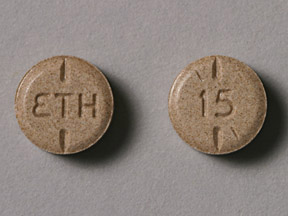
Morphine Sulfate Coupons & Savings Card – Discount Prices from $16.33
Morphine is an opioid medication specifically designed to alleviate severe pain, especially when other non-opioid pain relievers are ineffective. Available in various forms such as pills, oral liquids, and rectal suppositories, morphine can address both sudden (acute) and prolonged (chronic) pain. It works by binding to mu-opioid receptors in the brain, altering the perception of pain and reducing discomfort. Common side effects may include drowsiness, dizziness, and constipation. Always consult with healthcare professionals like doctors or pharmacists before using morphine to ensure safe and effective use tailored to your individual needs.
Our coupons are free to use. Before paying, show the pharmacist your Morphine Sulfate savings card to get your free discount. Use our filters below to edit the prescription box to match your needs. The Morphine Sulfate prices will update based on your prescription needs. Above our Morphine Sulfate coupons, you can change your location to see pharmacy prices and costs in other areas. We're here to help you buy Morphine Sulfate at the lowest price with our prescription discount card.
My prescription
Edit
15MG, Morphine Sulfate (60 Tablets)
Select pharmacy

CVS
$21.80
COUPON PRICE
Walgreens
$16.33
COUPON PRICE
Albertsons
$19.62
COUPON PRICE
Walmart
$31.50
COUPON PRICEMorphine Sulfate savings card
Show this card to your pharmacist
Walgreens
$16.33
BIN
ID
PCN
GRP
011867
LHAC26A604
HT
LABH001
Powered by
Morphine is an opioid medication specifically designed to alleviate severe pain, especially when other non-opioid pain relievers are ineffective. Available in various forms such as pills, oral liquids, and rectal suppositories, morphine can address both sudden (acute) and prolonged (chronic) pain. It works by binding to mu-opioid receptors in the brain, altering the perception of pain and reducing discomfort. Common side effects may include drowsiness, dizziness, and constipation. Always consult with healthcare professionals like doctors or pharmacists before using morphine to ensure safe and effective use tailored to your individual needs.
Our coupons are free to use. Before paying, show the pharmacist your Morphine Sulfate savings card to get your free discount. Use our filters below to edit the prescription box to match your needs. The Morphine Sulfate prices will update based on your prescription needs. Above our Morphine Sulfate coupons, you can change your location to see pharmacy prices and costs in other areas. We're here to help you buy Morphine Sulfate at the lowest price with our prescription discount card.
More prescriptions for pain
coupons from$12.44Save 71%
coupons from$1.01Save 94%
coupons from$71.75Save 32%
coupons from$37.62Save 18%
coupons from$7.93Save 67%
coupons from$9.59Save 67%
coupons from$44.87Save 49%
coupons from$1351.32Save 17%
More prescriptions for pain
Ketorolac Tromethamine +rfid Save 71%coupons from $12.44
Benzocaine Save 94%coupons from $1.01
Vazalore Save 32%coupons from $71.75
Lidocaine Pain Relief Max St Save 18%coupons from $37.62
Naproxen Sodium Save 67%coupons from $7.93
Pharbetol Save 67%coupons from $9.59
Buprenorphine Save 49%coupons from $44.87
Fentora Save 17%coupons from $1351.32
Morphine Sulfate dosage forms
Use our Morphine Sulfate 15MG coupon with prices from $18.91 for 60 Tablets. You can also use our Morphine Sulfate 15MG coupon with prices from $2.00 for 1 Tablet. We have a Morphine Sulfate 15MG coupon with prices from $2.00 for 4 Tablets. You can use our Morphine Sulfate 15MG coupon with prices from $2.00 for 6 Tablets.
Dosage Quantity Price from Per unit 15MG 60 Tablets $18.91 $0.32 15MG 1 Tablet $2.00 $2.00 15MG 4 Tablets $2.00 $0.50 15MG 6 Tablets $2.00 $0.33 15MG 30 Tablets $5.46 $0.18 15MG 56 Tablets $17.12 $0.31 15MG 84 Tablets $23.21 $0.28 15MG 90 Tablets $23.56 $0.26 15MG 100 Tablets $24.14 $0.24 15MG 120 Tablets $25.31 $0.21
| Dosage | Quantity | Price from | Per unit |
|---|---|---|---|
| 15MG | 60 Tablets | $18.91 | $0.32 |
| 15MG | 1 Tablet | $2.00 | $2.00 |
| 15MG | 4 Tablets | $2.00 | $0.50 |
| 15MG | 6 Tablets | $2.00 | $0.33 |
| 15MG | 30 Tablets | $5.46 | $0.18 |
| 15MG | 56 Tablets | $17.12 | $0.31 |
| 15MG | 84 Tablets | $23.21 | $0.28 |
| 15MG | 90 Tablets | $23.56 | $0.26 |
| 15MG | 100 Tablets | $24.14 | $0.24 |
| 15MG | 120 Tablets | $25.31 | $0.21 |
| 30MG | 1 Tablet | $2.00 | $2.00 |
| 30MG | 4 Tablets | $2.00 | $0.50 |
| 30MG | 6 Tablets | $2.00 | $0.33 |
| 30MG | 30 Tablets | $14.90 | $0.50 |
| 30MG | 60 Tablets | $22.80 | $0.38 |
| 30MG | 90 Tablets | $25.05 | $0.28 |
| 30MG | 100 Tablets | $25.80 | $0.26 |
| 30MG | 120 Tablets | $27.30 | $0.23 |
